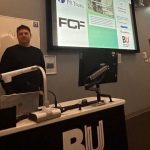I am a first-year at BU studying BSc (Hons) Adult Nursing. There is a saying by Martin Luther King that goes, “you don’t have to see the whole staircase; just take the first step.” Here I am! I took the first step and became a student nurse.
My first placement was in a rehabilitation ward in a community hospital – a 50-minute bus ride and 10-minute walk out of Bournemouth. Very precise, right? The placement was eight weeks long, and I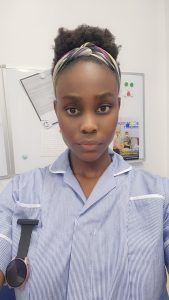 had three hundred hours to complete. I worked three 12-hour shifts each week and completed 80% of three hundred hours.
had three hundred hours to complete. I worked three 12-hour shifts each week and completed 80% of three hundred hours.
A ty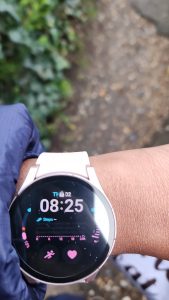 pical day for a student nurse on placement like me begins with waking up to an alarm clock at 6am with an inner urge to hit the snooze button but remember the three hundred hours that must be completed! I shower to wake up and make my bed as McRaven said: “If you want to change the world, start by making your bed.”
pical day for a student nurse on placement like me begins with waking up to an alarm clock at 6am with an inner urge to hit the snooze button but remember the three hundred hours that must be completed! I shower to wake up and make my bed as McRaven said: “If you want to change the world, start by making your bed.”
I am out of the house door by 6:45am; I start with a 10-minute walk to the bus stop getting there before 7:05am, as that’s when the first bus to the community hospital leaves the bus stop. I get to placement a few minutes before 8am, and my 12-hour shift begins.
I am not good with having breakfast first thing in the morning; if you noticed, I missed it after making my bed! I like late morning breakfast, so I always have cornflakes stocked up and packed in my little lunch box ready for breakfast at 10am in the break room at work. Before we get to breakfast, let me take you on a journey of shift start!
The first day of placement feels like entering a new world but this time around, with a student uniform, black nursing shoes, a nurse watch and multi-colour pens, and a notebook in my pocket. Typical newbie vibes got me stocking up on pens and watches using WHSmith and Amazon!
Hey, here I am, walking down the ward’s long corridor. I didn’t take time to calculate the length, but the ward consisted of three bays, three side rooms, and a nursing station. It’s safe to say on my first day I looked like a lost chicken!

The ward staff were very understanding and welcoming to me. They all introduced themselves and their roles and showed me around the ward. Whatever nervousness I had in me cooled down. Luckily, I got to work with my practice assessor on my first day. She briefed me on everything that took place on the ward, the patients she was in charge of that day and the to-do tasks.
A day in a rehabilitation ward begins with a handover from the night shift nurses, then helping patients out of bed into their side bed chairs for those that can sit out ready for breakfast later; the rehabilitation support workers make breakfast along with a medication round by the nurses. After breakfast, morning washes are commenced. Once washes are completed, a morning round with the physiotherapist and nurses is carried out, and each patient’s rehabilitation progress is assessed. A discharge and rehabilitation plan is put in place for each patient. I didn’t tell you about the aims and objectives of the rehabilitation ward, did I?
The rehabilitation ward admits patients following an acute admission from all hospitals in Hampshire and Dorset. It is incredible that during the eight weeks of placement, however much the daily routine tasks were the same, the rehabilitation progress was different. I saw patients improve mobility from hip replacements, falls, and other acute conditions affecting their mobility.
Each day of the shift was the same medical routine, breakfast, washes, medication, rehabilitation, food, medication, lunch, afternoon tea, evening observations, dinner, and medication, but it made the day go fast as there was always something to do. I have summarised the routine as I didn’t want to bore with the same routine day in and out for eight weeks.
As a stu dent nurse, I learnt that repetitive routine shows the care and empathy healthcare professionals give patients daily. Vincent Van Gogh said,”Great things are done by a series of small things brought together.” Small things like helping a patient with a morning wash and making sure that they have had breakfast motivate them to heal and recover from acute illness and be able to mobilise, enhancing recovery.
dent nurse, I learnt that repetitive routine shows the care and empathy healthcare professionals give patients daily. Vincent Van Gogh said,”Great things are done by a series of small things brought together.” Small things like helping a patient with a morning wash and making sure that they have had breakfast motivate them to heal and recover from acute illness and be able to mobilise, enhancing recovery.
My practice assessor said to me at the end of my eight weeks of placement, “you may think you have taken no clinical lessons away from this placement, it being the first, but you have learnt the fundamentals of primary care that you should carry for the rest of your academic life as it’s with primary care that nurses can provide efficient and effective care to patients, never forget that!”

 2020 – the challenging yet rewarding year for the student nurse
2020 – the challenging yet rewarding year for the student nurse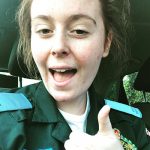 Life as a student paramedic during the pandemic
Life as a student paramedic during the pandemic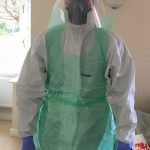 My BU student Paramedic experience
My BU student Paramedic experience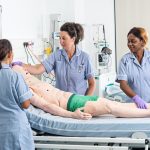 A mature student’s perspective on Adult Nursing and international placements
A mature student’s perspective on Adult Nursing and international placements







